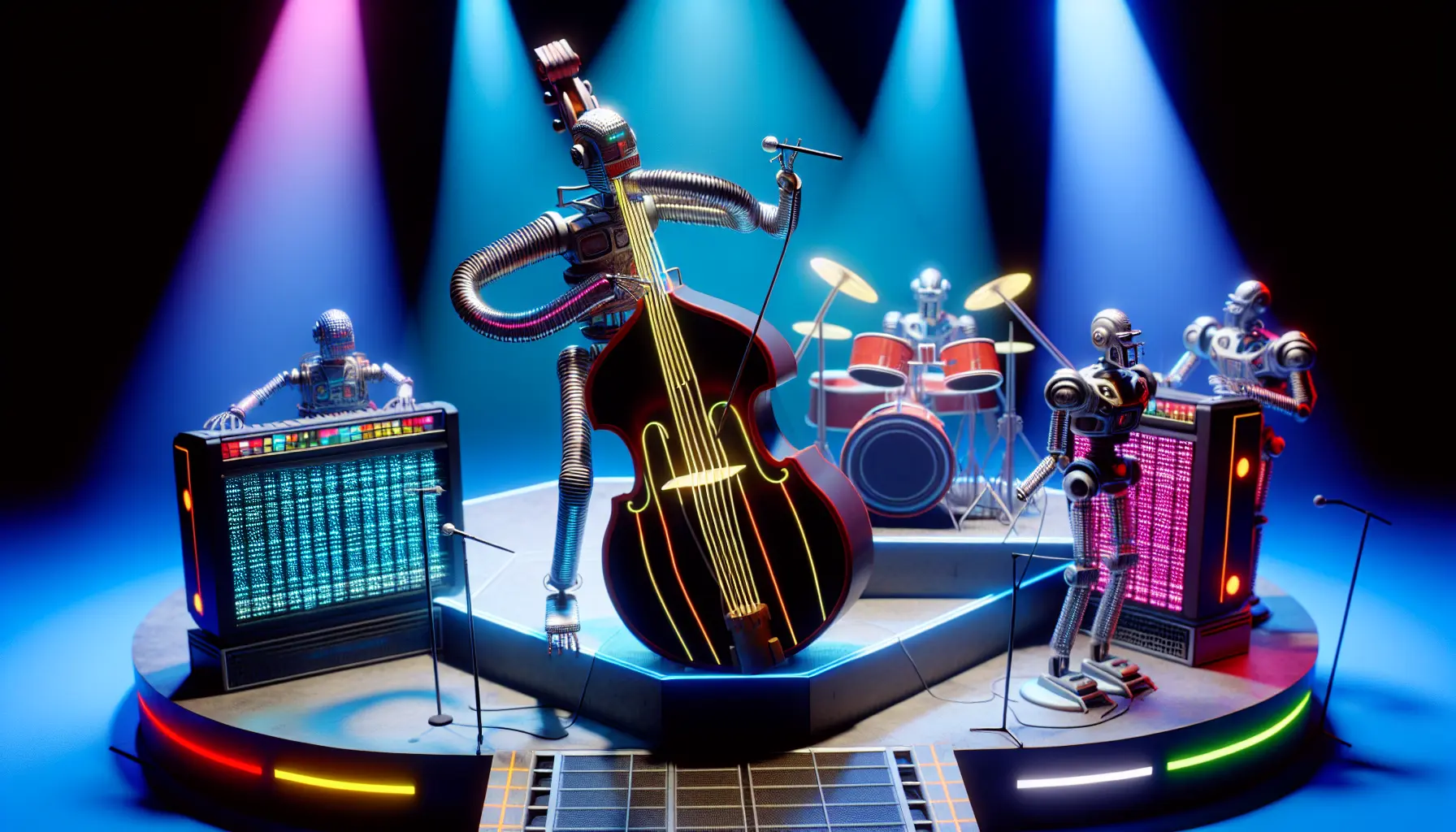
Artificial Intelligence is here to stay. It is already shaping the way we search online, how businesses operate, and increasingly, how music is made. The potential is undeniable, but so is the responsibility. In music especially, the question is not whether AI can create, but whether it should.
At expansionrecords.com, we have always championed artists marginalised by the big US labels of the 1960s and 70s. There remains a demand for great songs, remarkable voices and well-produced albums, but the financial rewards have collapsed. Now, with AI advancing at breakneck speed, the risk is that what little value remains for real artists could vanish altogether.
From the Internet to AI
The internet was the first big disruptor. In the 80s and 90s, fans moved from vinyl and CDs to downloads and streaming. With every step, artist earnings fell. Today, a Spotify stream pays mere fractions of a penny. Artists can attract millions of plays and still struggle to cover basic living costs.
The top tier survived on “360 deals,” where labels took cuts of sales, touring, merchandise and endorsements. For everyone else, survival meant hustling. Yet the internet also democratised creation. Affordable software let artists produce from their bedrooms. Platforms like Napster and MySpace gave them audiences without label backing. Some even drew industry attention only after proving they had fans ready to buy.
This was liberation of a kind. But just as the industry adjusted, another disruption arrived: AI.
When the Machine Sings
AI-generated music is no longer fantasy. Algorithms can now produce songs in the style of classic artists, replicate voices with uncanny accuracy, and churn out lyrics in seconds. Entire albums can be created without a human musician.
To consumers, the novelty is obvious. Imagine “new” tracks that sound like Marvin Gaye or Aretha Franklin. For platforms and labels, the profit is irresistible: infinite content, no royalties, no studio costs, no egos.
But is this creativity, or is it fraud?
The Authenticity Problem
Music is more than sound waves. It is lived experience channelled into melody and lyric, an expression of joy, grief, hope or rage. When a soul singer delivers heartbreak, it resonates because it is real. An algorithm can mimic tone and phrasing, but it cannot replicate authenticity.
This is why AI feels like cheating. The consumer may believe they are hearing artistry, when in reality they are consuming an imitation designed to sell. Worse, the real artists already struggling for income will be forced to compete with machines that can generate endless tracks at no cost.
Who Protects the Artist?
The urgent issue is protection. If AI is allowed to mine catalogues, copy voices and generate “new” works without consent or payment, artists are left powerless. Copyright law must evolve to cover vocal likenesses and stylistic signatures.
We have already seen major labels demand the removal of AI-generated tracks mimicking their stars. Deepfake vocal lawsuits are emerging. Yet regulation lags behind technology, and enforcement is patchy. Without intervention, music risks becoming a lawless zone where human artistry is trampled.
Live Music Under Threat
Even live performance, once the final stronghold of authenticity, is under pressure. Abba’s Voyage shows feature digital avatars of the band’s younger selves, performing to packed arenas. Audiences seem content to cheer holograms.
If consumers accept CGI performers, what stops the industry from inventing entirely fictional acts? Artists with no ageing, no scandals, no human flaws, only digital perfection and AI-made hits. It sounds dystopian, but it is already within reach.
Will audiences care? History suggests they might not. Record stores gave way to streaming, auto-tune became the norm, TikTok clips began dictating charts. Each time, convenience won.
A Choice of Culture
The responsibility now lies with industry and consumers alike. We must ask what kind of culture we want to support. Do we want charts filled with machine-made imitations of soul, jazz and pop, or do we want to protect the human voices that gave those genres their meaning?
As a label, our commitment is to artists left behind by the mainstream. Fans still hunger for the grit of lived experience, the imperfection of human performance, the thrill of discovering new voices. That is worth defending.
AI can have a place, but as a tool, not a replacement. It can help artists experiment, speed up production, or lower barriers to entry. Used responsibly, it can assist creativity. Used recklessly, it risks wiping out the very humanity that makes music matter.
Who Are We Deceiving?
“To AI or not to AI” is not an abstract question. It is the decision facing the entire industry. If we embrace AI without safeguards, we are deceiving consumers, telling them imitation is enough. Worse, we deceive ourselves into believing culture can survive without its human core.
We risk reducing music to product, stripping away soul and truth, and telling marginalised artists that their voices are disposable. AI can be part of progress, but only if used with care. Without that, the deception will be total. And when the humanity is gone, what will be left to connect us?